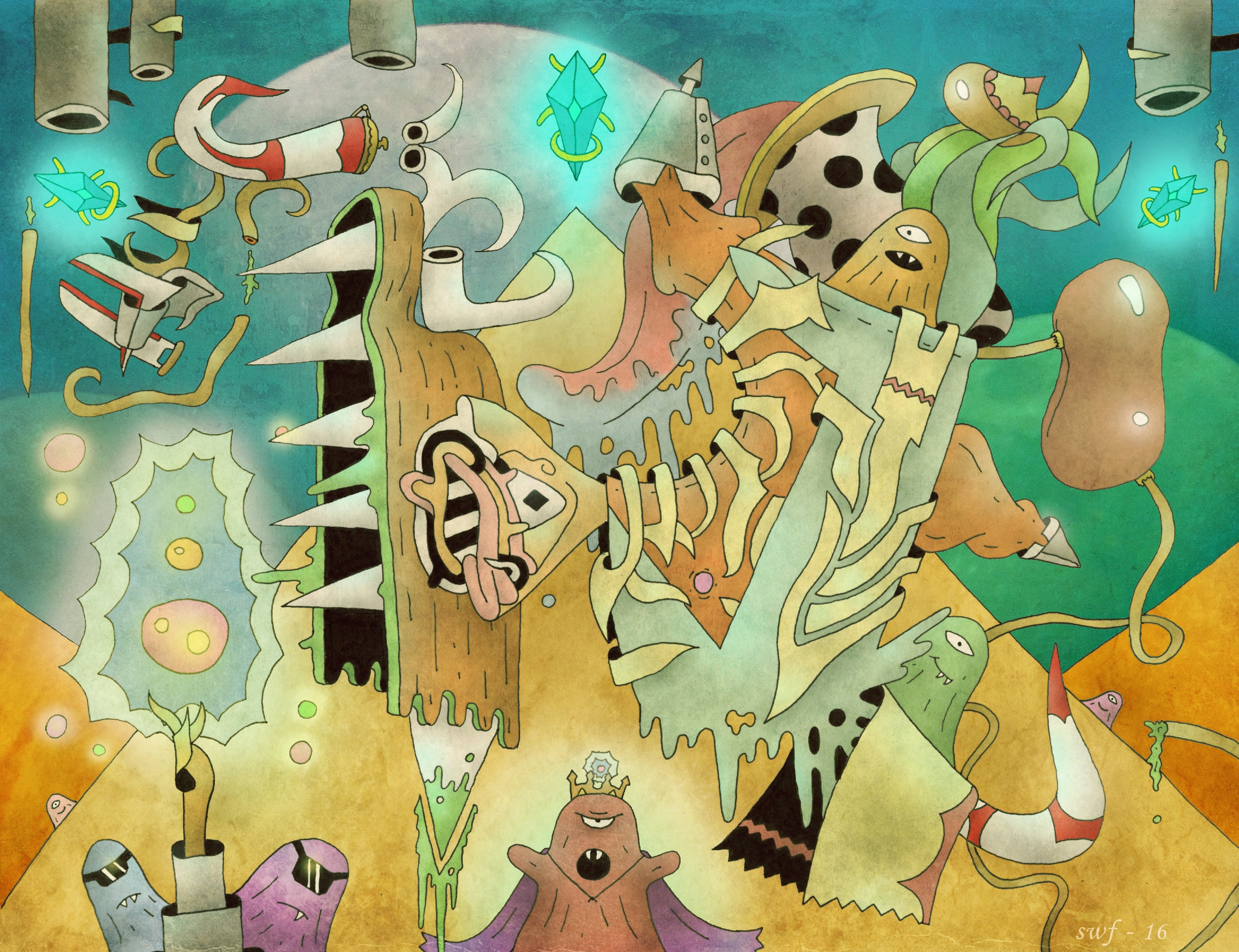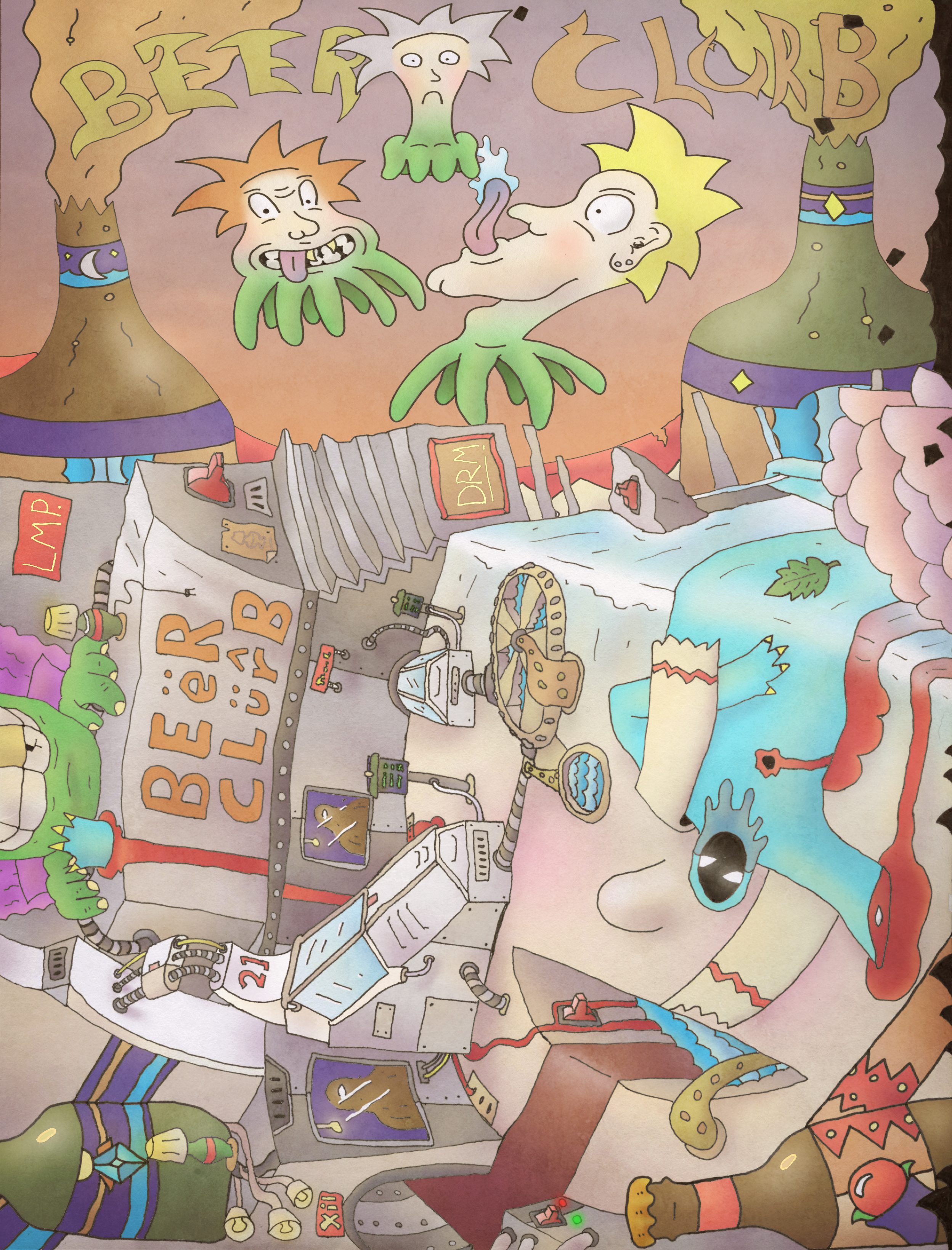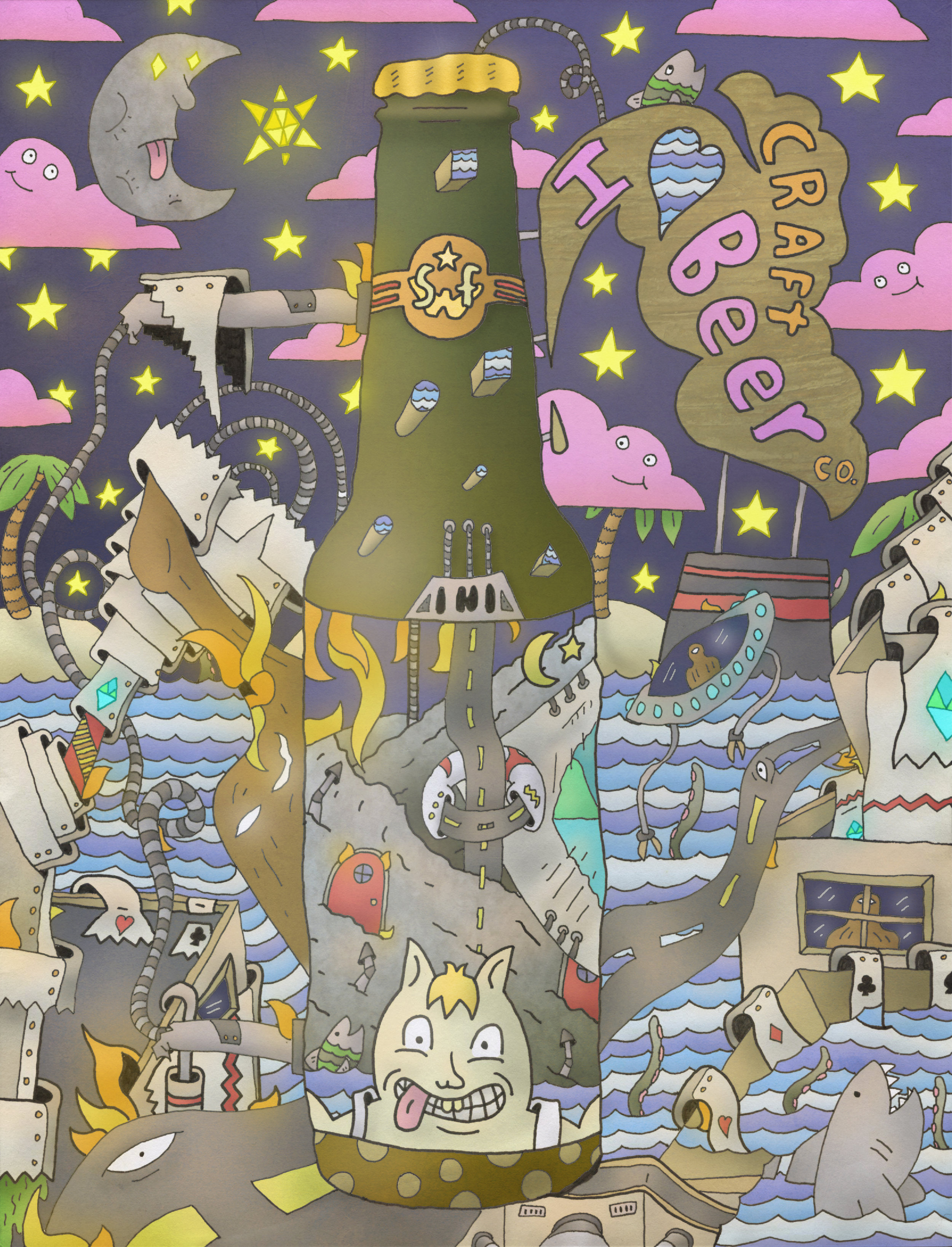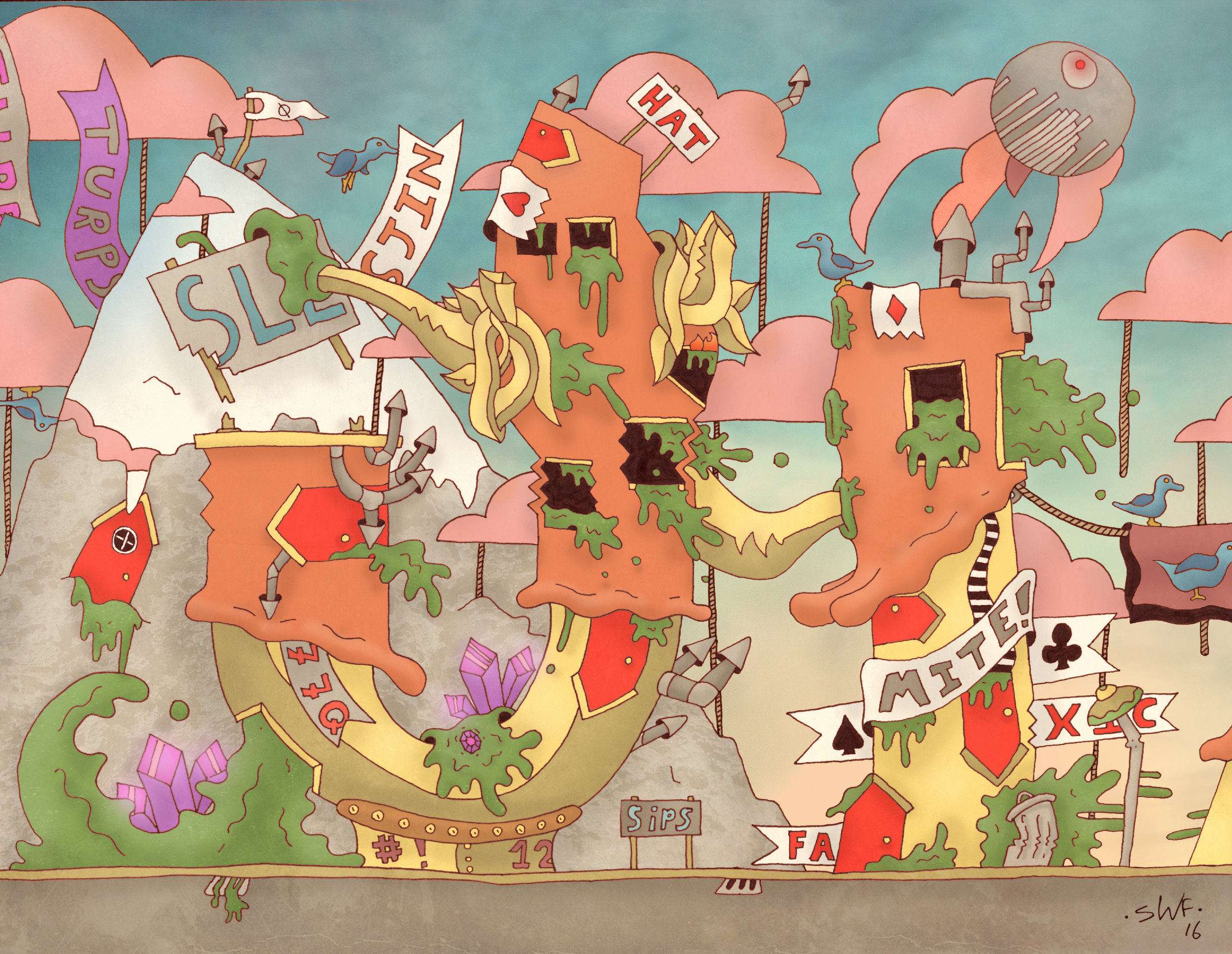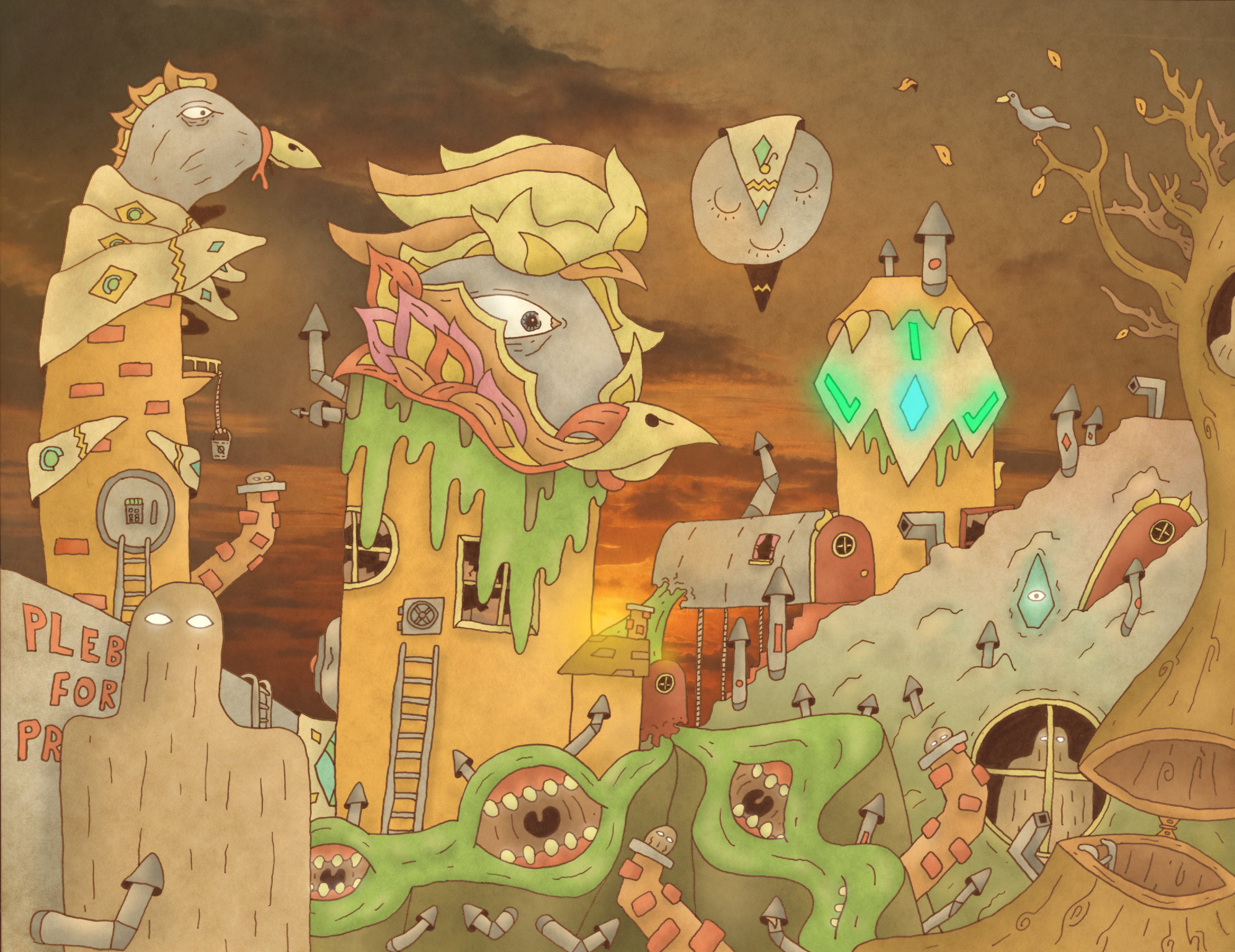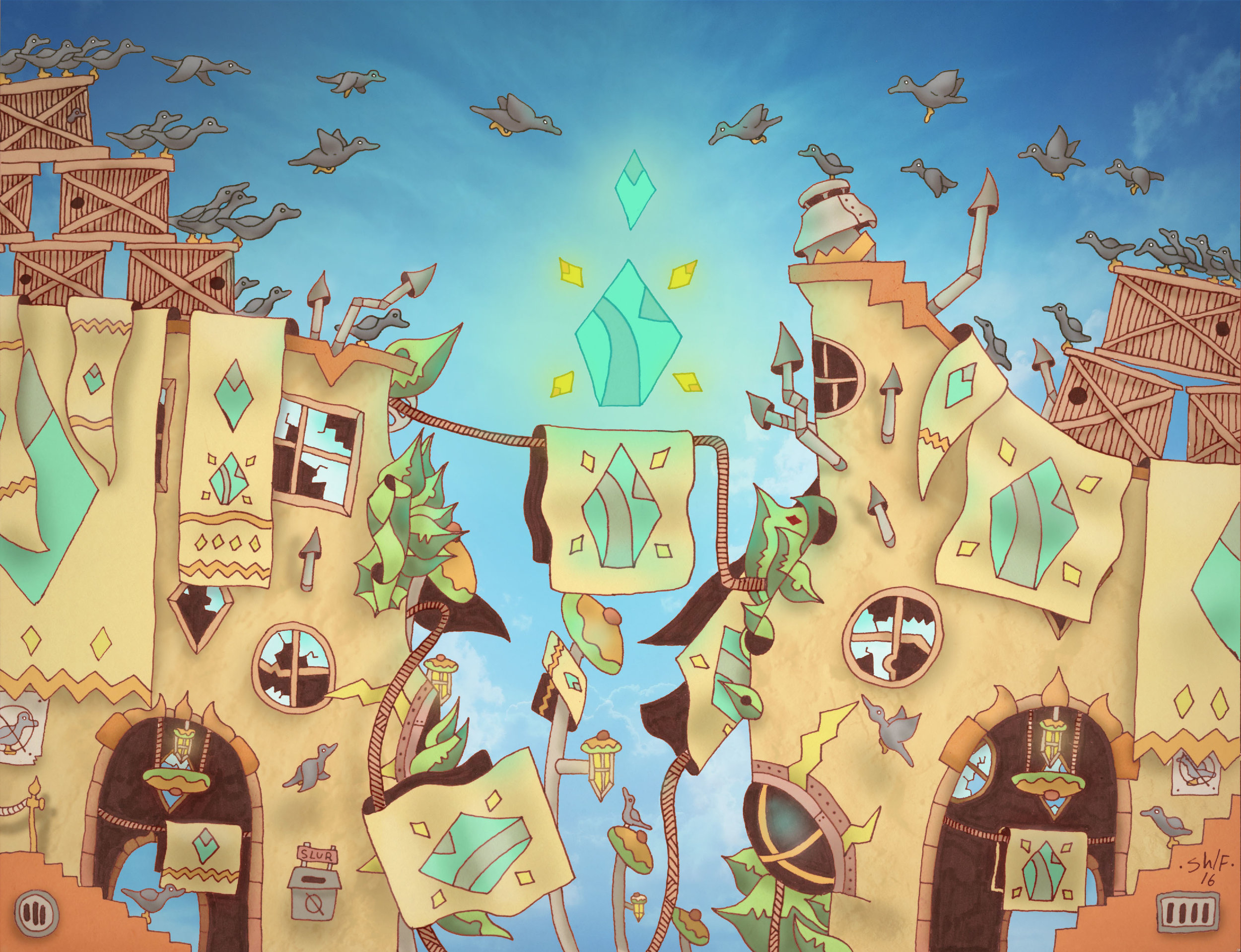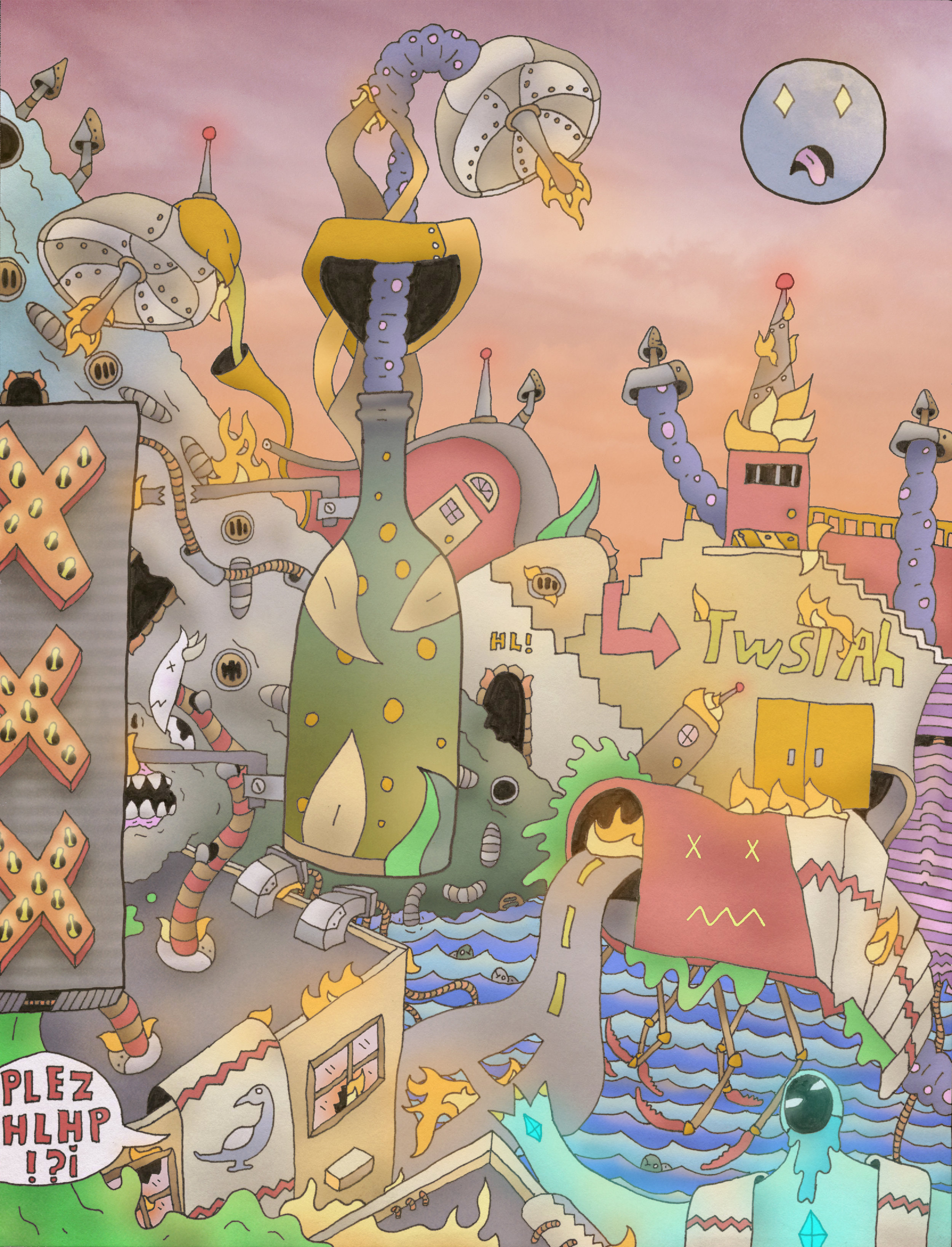Compromise made Stacie angry. Her mother had texted her early that morning suggesting that they have lunch somewhere a bit more “traditional.” Apparently the last time the three of them–Stacie and her parents–met for lunch, her father was so lost in the Filipino menu that he was beside himself the rest of the day. Refusing to give fully in to her father’s parochial tastes, Stacie picked an empanada spot on the Lower East Side. Mexican was as “traditional” as she was willing to go.
Stacie thought back on when she took them to the Filipino restaurant in Queens. Her father had sent the waiter away twice so he could continue “inspecting” the menu before finally asking for the General Tso’s Chicken. Stacie’s mother, noticing her daughter’s embarrassment, whispered to her husband that “they don't make that here.”
“Oh, I’m sure they could,” he said, his eyes narrowed on the waiter. “It’s all pretty much the same, right?” Eventually, he settled for the Chicken Adobo but Stacie’s embarrassment had already turned into anger which would last for the rest of the meal.
She welcomed her anger this time, though, with open arms. It was a distraction for her. She came to the restaurant straight from her college library and was immediately returning after lunch. For the past two days she had been working on an English paper that examines the ways female characters in the works of Zora Neale Hurston are silenced and how they find their voices. Having used her time until then re-reading Their Eyes Were Watching God and Mules and Men, she was ready to begin her secondary research and was meeting with a research specialist later that day. The paper was due in two weeks and in a strange way her anger ameliorated her stress. Not only was it a distraction but an affirmation, too; she was in control of something; her voice, like those in Hurston’s works, mattered and was going to be heard.
So, when her parents walked in and her father smiled at first glance around the restaurant, she felt her lips purse with bitterness.
“This place looks fun,” her mother said as they all took their seats. “Your father said he isn't going to say anything this time–that he’s just going to shut up.” Stacie laughed along with her mother.
“He’ll have nothing to complain about,” Stacie said. “Just like he had nothing to complain about last time when–”
“Okay, okay, that’s enough. We’re all going to be friends for the day and enjoy our lunch,” her mother said.
Stacie handed the two of them menus. She periodically looked up from her’s to see what expressions they were making while reading over words like Chicharron and Arepas. Once or twice she caught her mother doing the same, peeking over her menu to read her husband’s mood. Her father for his part kept his word and said nothing. Stacie tried to convince herself, though, that she could see his mechanical smile tightening bit by bit the more he read.
But he didn't ask for a cheeseburger or a t-bone; nor did her mother try to look over the counter to check the skin tone of the cook. He ordered the Pollo a la Plancha. She–the Pollo Guisado. And Stacie ordered two empanadas, one chorizo and the other just queso.
As they ate, her mother asked her how the end of the semester was unfolding. Stacie began talking about the paper she had just come from working on. Gesturing excitedly with her hands, she spoke about the paper’s main argument and how much she loved her English professor who drank Campbell’s soup out of coffee mugs and had an erotic painting of Leda and the Swan in her office. Her father interrupted her midway through, asking what grade she was planning on getting in Organic Chemistry.
“You know,” he said, “that class that counts toward your major–toward your degree.”
“English counts toward my degree too, Dad. It’s a core class.” He nodded, smiled again. “And please don’t interrupt me when I’m talking.”
Her mother started. “Stacie,” she said. “Your father’s just worried. We haven’t heard anything from you about your classes in months and once we do, you’re talking about a class that isn't even in your major. Are you thinking of changing majors?”
“Jesus, Mom, no.”
“She’s not changing majors,” her father said.
“I just said I wasn’t.”
“She couldn’t, it’s too late.”
“It’s not too late, but I’m not. I just said I wasn’t.”
“I heard you, Stacie,” he smiled. “What about Ecology?”
Stacie took a drink from her water.
“You know Dr. Jordan writes poetry, too? She was published in some really big magazine this semester, apparently. Mom, you should read her. I guess she writes a lot about social justice and civil rights. She even went to Standing Rock over winter break.”
“This is a science teacher?” she asked.
“No, Mom. Dr. Jordan is my English professor. I’ve been telling you about her class this whole time.”
Her father motioned at the waiter for more water. “You’re not turning into one of those college students are you?” he asked
Stacie waited for the waiter to fill all three glasses. She thought about the question, looked at her mother for clarification who instead looked at Stacie as if she, too, wanted assurance that her daughter wasn't becoming a college student.
“What does that even mean?” Stacie asked once the waiter left.
“You know, one of those college students,” he said, still smiling.
“Dad, I am a college student. I’m in college. What’re you talking about?”
“Your father and I have just been seeing a lot on the news lately about student protests and demonstrations.”
“Yeah, like the ones we saw on our way here.”
“Are you talking about the Black Lives Matter people in the park?”
“Whoever the hell they are,” he said. “Sure. Crybabies. Professional protestors.”
“Your father and I had dinner with the Jeffersons a couple weeks ago and Mary’s mom said that her grades have been falling because of all these protests she’s been involved in at Boston University. And we’re just worried that you may be distracted if you’re involved in the same sort of things.”
“I’m not worried about that,” her father said. “I’m more worried my only daughter who has made it this far on her own is now going to revert to being a crybaby like the rest of these college students.”
“Oh my God, Dad, they’re not crybabies, they’re just–”
“They’re not? What’re protesting then? What’re they trying to achieve? And these idiots in the park? Black Lives Matter. Ha! They’re accusing all of us of being racist–the police, all of us–and then they make a slogan like that? What does that tell you about what they think of equality?”
“Dad, it doesn’t mean–”
“And they’re killing cops, too. They’re complaining about police violence and the police are the ones being murdered by the protesters. They’re all thugs. They should all be–”
“Dad, shut up!”
“Stacie,” her mother started, instinctively pinching her daughter’s thigh under the table. Her dad sat back and smiled after a moment or two of obvious befuddlement. Perhaps noticing the window of silence at the table, the waiter delivered the check. Stacie sat forward in her seat, forcing her mother’s cautionary hand off of her knee.
“It’s okay, Margaret,” her father finally said. “If she wants to tell her father off again, I’ll let her.”
“Look, Dad, Black Lives Matter does not mean that black lives matter more than any other life. It means that for years now black lives have been treated like they don't matter, and people want to remind everyone, especially police, that black lives are just as important as every other one. They aren't killing police, either. Those people from Dallas or from Louisiana aren't a part of Black Lives Matter, no matter what they say. They aren't thugs. They’re just angry people who want to be heard for once and inconveniencing people through protest is the only way they have left anymore.”
Once she was finished, and after a moment more of silence, her father sucked his front teeth in supposed acceptance and put his credit card down on top of the bill.
“Alright, Stacie,” he said. “We hear you loud and clear. I guess we’re all just old racists.”
“Oh, Daniel,” his wife lamented. “Would you, please, just?”
“What do you want? I’m agreeing with her? I’m agreeing with her and hoping that I can now hear how my money is being spent at that college. Will you tell me now how you’re doing in Organic Chemistry?”
***
Stacie was sure to hug her father before they parted ways at the D train. She had won in more ways than not and had to exit with grace. It’s not that she was convinced her father had become more accepting of Black Lives Matter or more willing to concede to the existence of police brutality; but she made him listen and that was at least a win for her.
Back at the library, she met the research specialist she was assigned to–a young woman named Kara. Kara wanted to begin by having Stacie describe her paper’s aims so that they could settle on a number of key words to search for in the library’s online databases. Explaining her paper, Stacie couldn't help but fixate on the fact that Kara was coincidentally black, and she wondered how excited she must have been to hear that Stacie was working on someone like Zora Neale Hurston.
Kara, having heard the parameters of the paper, began first with a simple search of the words “Hurston” and “voice.”
“What do you think of Hurston?” Stacie asked Kara.
“Um,” Kara thought as she scrolled online. “I think I read a story or an essay by her for a class a long time ago.”
“But you’ve read Their Eyes Were Watching God.”
“No, I never actually read that. I don’t really know anything about her work, to be honest. So, this should be fun learning a bit about her.”
“Wait, so you’ve never read anything by her? You’re kidding.” Kara glanced sideways at Stacie, smiled slightly, and shook her head. “Oh my God, you have to. You seriously need to read something by her. Read Their Eyes Were Watching God, oh my God, I can’t believe you didn't even know who Zora Neale Hurston was.”
“I didn't say that I–”
“Come on, Kara,” Stacie laughed. “You’re lying. You’ve got to be. Oh my God, this should be like required reading for you. Their Eyes Were Watching God is all about a black woman’s search for her voice and how she uses her voice and her anger to empower herself as a woman.”
“Sounds fun,” Kara said.
“I mean, we could all be a little angrier, don't you think? We’ve all got to be angrier. You. Me. All women. I promise you, you’re going to read some Hurston this weekend and you’re just going to start, like, unleashing your anger on everyone. Trust me, it’s more fun than it sounds.”
“That’s nice,” Kara said. “How about this article here?”
Stacie looked at it and nodded. Kara opened an email, copied the article’s link, and pasted it into the email’s body. Then, she continued scrolling.
As she watched her scroll through the article titles and abstracts, Stacie examined Kara’s face to see any sense of mutual excitement. Nothing hinted toward such emotions, but she did take note of Kara’s pursed lips, which reminded Stacie, for some odd reason, of her father. And for the rest of the appointment she sat there, in silence, wondering what that reason was.
***
Bo Fisher lives somewhere in Queens, New York. His fiction and poetry have appeared in Monkeybicycle, Potluck, The Fordham Observer, Contraposition, and The Underground. He can be found @BEdward26 more often than not threatening to fight Mr. Met and reminding Mike Huckabee that he's going to hell.

